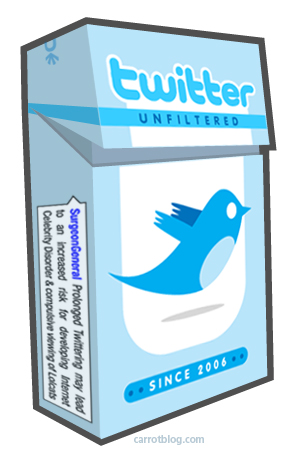
Facebook and twitter (like a phone or radio) can be used as fluffy, brain draining diversions, or to have sophisticated conversation about issues like access to affordable care and clinical trials. So how do you use social networking to be an educated and effective cancer activist instead of a slacktivist?
Seductive social media campaigns entice us to mobilize our networks to vote for projects where the most popular cause receives money and/ or exposure. (Take the Pepsi Refresh campaign - they’re so brilliant for not buying Superbowl ads this year when they can rent our brains for free on facebook instead.)
The problem with these online campaigns is popularity does not equal value. The popularity of a project, a person, or organization has zero to do with their efficacy, necessity, skills, or smarts. Plus, cancer is about much more than contests, awareness campaigns and fundraising. In fact, most cancer issues that impact our lives are about science, industry, politics, prioritized evidence-based research, and policy. If you don’t understand these words and how they relate to cancer, you will not significantly impact the future of cancer prevention, outcomes, and quality of life measures.
I don’t have a degree in science or public policy. But I know what I’m talking about when I stand in a Senator’s office asking that Congress demand more funding from the National Cancer Institute for young adult research. And, I can write good letters to my newspaper asking that pharma not be allowed to hold a patent the BRCA gene. I’ve educated myself about these issues online, and facebook and twitter have played an increasing role. To make a serious impact as a cancer activist, consider these tips:
1. Multiply By Five.
Keep track: For each tweet or facebook message you post or comment on, spend five minutes reading a journal or news article about healthcare policy or scientific research. The topics and jargon may seem foreign, but the more you read the more you’ll understand. If you don’t have this much time to spend reading, then you’re spending too much time on twitter and facebook!
2. Retweet Only What You Read.
Retweet information only if you have read the entire article/post, have an opinion about it or can ask an intelligent question, know who wrote it and their motives, and think it’s valuable to others. You’ll have fewer tweets/updates going out which in turns elevates the quality, rather than quantity, of conversation in the cancer community.
3. Get Stingy With Your Time and Attention
I don’t waste my brain or clog my inbox by joining any old facebook group. Before supporting an organization ask: Is the staff or director spending more time on facebook and twitter than working on the backbone of their mission? Are they filling a niche high on the list of cancer priorities and goals? Are they willing to speak up on controversial issues if it benefits their constituents? Will they educate me? @bcaction @cancerandcareer are great orgs doing it right!
4. Nix Online Petitions
E-letter and online petitions hold very little weight with elected officials. If you get an online petition, research the cause and if you support it, call your representative and write a letter to the editor.
5. Old Fashioned News Feeds
I still subscribe to daily and weekly email updates from professional sources and journals. Why? Because the smartest, most effective people I know are not spending their time twittering or on facebook. They’re engaged in science and policy and write more than 140 characters about their discoveries.
How much time do you spend on facebook or twitter. Do they change your knowledge or feel like a brain drain? Any tips for making the most of social media?
For more tips about how to spend your cancer time online, read Everything Changes: The Insider’s Guide to Cancer in Your 20s and 30s.


![]()
![]()


 “Everything Changes is, without doubt, the most forthright, emotionally sophisticated, and plain-old valuable book of its kind I've seen.”
“Everything Changes is, without doubt, the most forthright, emotionally sophisticated, and plain-old valuable book of its kind I've seen.”












